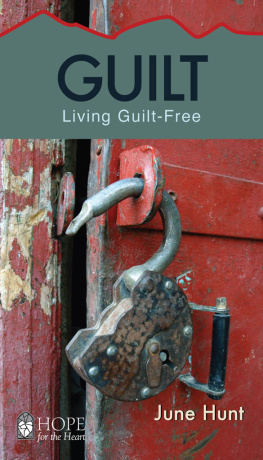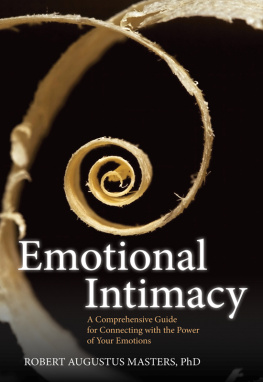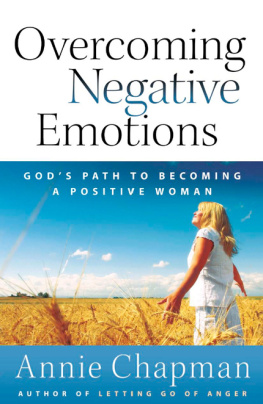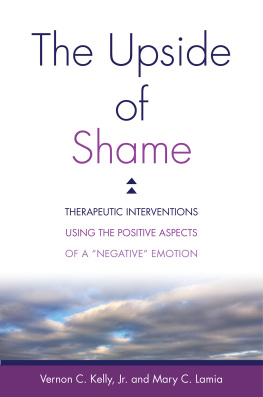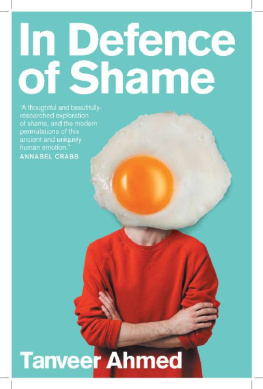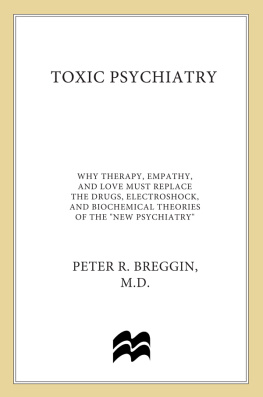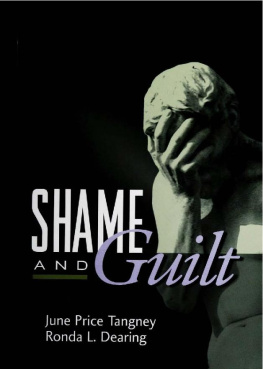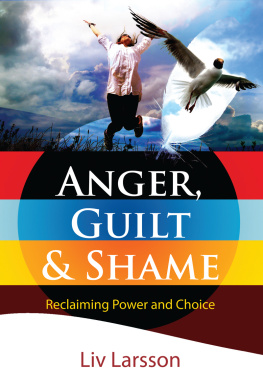
Published 2014 by Prometheus Books
Guilt, Shame, and Anxiety: Understanding and Overcoming Negative Emotions. Copyright 2014 by Peter R. Breggin. All rights reserved. No part of this publication may be reproduced, stored in a retrieval system, or transmitted in any form or by any means, digital, electronic, mechanical, photocopying, recording, or otherwise, or conveyed via the Internet or a website without prior written permission of the publisher, except in the case of brief quotations embodied in critical articles and reviews.
Prometheus Books recognizes the following registered trademarks mentioned within the text: Abilify, Compazine, Haldol, Invega, Jell-O, Reglan, Risperdal, Saphris, Seroquel, Xanax, and Zyprexa.
Cover image Bigstock
Cover design by Grace M. Conti-Zilsberger
Inquiries should be addressed to
Prometheus Books
59 John Glenn Drive
Amherst, New York 14228
VOICE: 7166910133
FAX: 7166910137
WWW.PROMETHEUSBOOKS.COM
18 17 16 15 14 5 4 3 2 1
The Library of Congress has cataloged the printed edition as follows:
Breggin, Peter Roger, 1936
Guilt, shame, and anxiety : understanding and overcoming negative emotions / by Peter R. Breggin, MD.
pages cm
Includes bibliographical references and index.
ISBN 978-1-61614-149-3 (paperback) ISBN 978-1-61614-721-1 (ebook)
1. Emotions. 2. Guilt. 3. Shame. 4. Anxiety. I. Title.
BF531.B735 2014
152.4dc23
2014023875
Printed in the United States of America


This is an important book. It introduces a new and convincing theory about the origins of our most painful and self-destructive emotions and applies this insight to how we can improve our lives. If you think that nothing new can be written about the human condition, you have a surprise waiting for you. Guilt, Shame, and Anxiety is a book of breathtaking originality. It is filled with unique insights and innovative procedures that can transform our lives, relationships, and worldviews.
In March 1887, Charles Darwin met with ornithologist John Gould, who had been studying Darwin's bird specimens from his trip to the Galapagos Islands. Darwin left the meeting convinced that transmutation was responsible for the presence of similar but distinct species on the different islands. The dogma of species barrier had been shattered; instead, he concluded that species are not immutable. Nonetheless, Darwin waited several decades before he published his theory of evolution and then did so because another naturalist, Alfred Russel Wallace, was about to publish a similar theory. Darwin knew that his ideas would meet with stiff resistance from many powerful groups. In fact, they still do; many Americans, including prominent political figures, reject the theory of evolution outright.
Even so, Darwinian evolution is seen as the cornerstone of contemporary biology, and its influence cannot be overestimated. In the words of Michael Shermer, Evolution matters because science matters. Science matters because it is the preeminent story of our age, an epic saga about who we are, where we came from, and where we are going. Peter Breggin has mined Darwin's writings, and those who came after him, to propose a unique but crucial insight, namely that humanity's negative legacy emotions, the residue of its evolutionary past, are at the root of many if not most contemporary personal, social, and political conflicts.
In this remarkable book, Peter Breggin takes his readers on a step-by-step journey to help them identify and replace this negativity with life-affirming attitudes and values that will enhance their well-being and happiness. Humans may be both the most violent and the most social of all creatures. What other species kills so many of their own kind? What other species reaches out to help numerous others survive and prosper? Breggin describes how guilt, shame, and anxiety serve an adaptive evolutionary function by inhibiting willfulness and violence in personal and family relationships. These negative legacy emotions make children compliant and are easily triggered in childhood, especially by deprivation and abuse as well as by conflicts later in life.
Breggin recommends liberating oneself from this negative legacy by identifying the emotion, rejecting its influence, and replacing it with common sense, rational values, and empathic love. His emphasis on love is in accord with an underappreciated aspect of Darwin's work. Darwin's book The Descent of Man mentions survival of the fittest two times, once derisively. But David Loye's computer search identified ninety-five instances of the word love. Natural selection favored those who were able to give aid to each other, as this would give them an advantage over other tribal groups. Breggin has followed this often-neglected aspect of Darwinian thought, emphasizing traits that can be found in many nonhuman species that foster social support.
There are other ways in which the behavior of other animals can be instructive. Breggin tells the story of his two dogs, Blue and Cavie, both of whom were exposed outdoors to a lightning bolt that illuminated the neighborhood. Cavie never recovered and ducked for shelter whenever there was the merest rumble of thunder. Blue, however, was unfazed by the lightning and had no hesitation in walking about during a thunderstorm. In my experience with children and adults faced with trauma, I have seen similar differences. One war veteran will return from a combat situation emotionally shattered, with all the symptoms of posttraumatic stress, while his buddy will assimilate the horror and return to the battlefield the next day. Both are examples of the difference between an event and an experience. As Epictetus famously wrote, it is not what happens to us that is as important as how we react to what happens, an aphorism repeated over the ages by Marcus Aurelius, Alfred Korzybski, Aldous Huxley, and Albert Ellis. Therefore, I have written about potentially traumatizing events that oftenbut not alwayslead to traumatic experiences. childhood and adolescence, laying the groundwork for what later becomes post-traumatic stress with its accompanying panoply of repetitive nightmares, emotional numbing, severe anxiety, and flashbacks. Oftentimes, guilt is part of the matrix and can lead to suicide, just as shame, when it occurs, can lead to antisocial acts. Breggin's self-help exercises can be especially useful for posttraumatic stress survivors and their families.
Breggin is a well-known and respected psychiatric reformer who for decades has taken on the psychopharmaceutical complex as well as the simplistic explanations of human behavior proffered by neuromania. Instead of buying into the proposition that one's neurology controls one's actions, he cites research that demonstrates that human activity, especially spiritual practices, can alter brain function.
I agree with Breggin's description of spirituality as a worldview that encompasses something beyond oneself. This would include interaction with God, the higher self, a noble cause, or the cosmos itself. In any event, the importance of spirituality has long been emphasized by humanistic and transpersonal psychotherapists and has finally been acknowledged by mainstream mental-health care providers.



